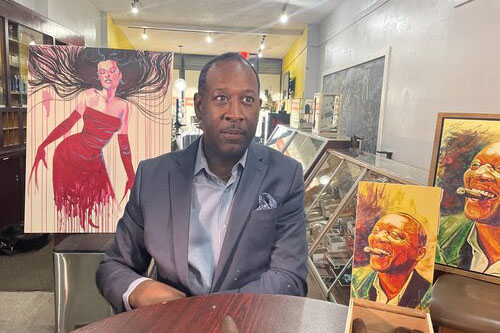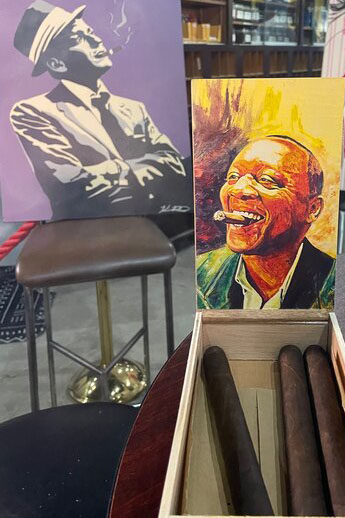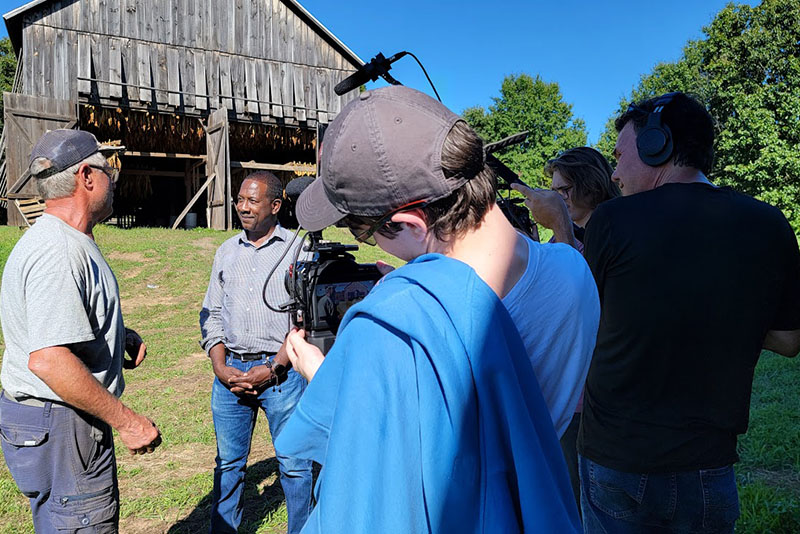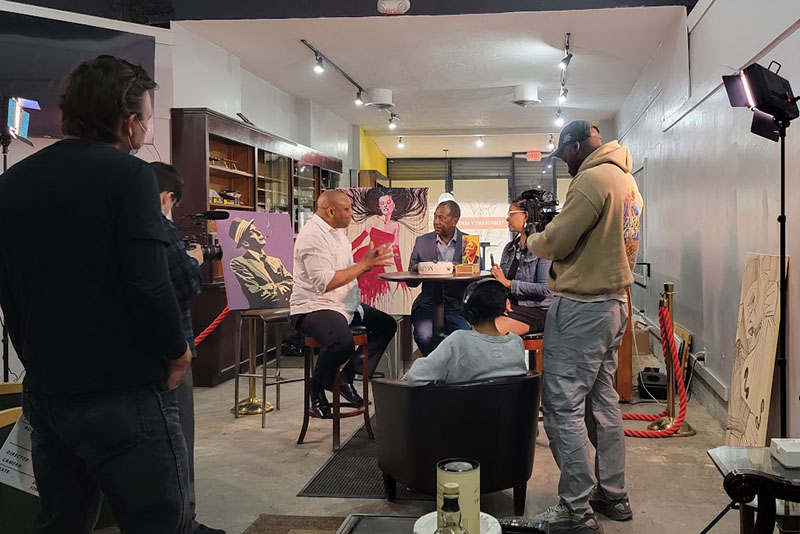- Apply
- Visit
- Request Info
- Give
'Stepping into the Shade': A civil rights story about Connecticut tobacco farmers
Written by Noel Teter
Published on November 07, 2022
A new documentary series about tobacco farm workers in Connecticut and their impact on civil rights is being produced by Eastern Theatre Professors Brian Day and Kristen Morgan. Hosted by Connecticut entertainment producer June Archer, “Stepping into the Shade” is planned to be released in late 2023.
“Everyone has seen the tobacco sheds but very few know how complex and dynamic the story really is,” said Day, the director of the series, of Connecticut's tobacco legacy.

In "Into the Shade," Archer will tour the state and have open conversations with community members and historians about the legacy of Connecticut River Valley tobacco farms. Students from Eastern, the University of Connecticut and Morehouse College will contribute to the discussion, as well as Jamaican immigrants, members of the Pequot nation and others.
A major goal of the production is to interview migrant workers and relatives of students at historically Black colleges and universities (HBCUs) who traveled north to work on the farms in the summer. So far, much has been uncovered about the connection between Jamaican workers and the community they built in Hartford. For example, Peter Davis, who was interviewed for the documentary, told the story of his father, who worked on the farms before breaking racial barriers by becoming a prominent real estate developer in Hartford.

Several threads have been discovered that connect migrant labor to the culture of the Connecticut River Valley. “One thread is that the high majority of the people we have spoken to who worked on the farms say it was an impactful part of their lives,” said Day. He also listed populations for which the farms provided opportunity, including Jamaicans, Puerto Ricans, African Americans from the South and HBCU students.
“Working on the farms allowed some to provide for their families, some were able to go to college, some started other businesses, some bought homes,” Day explained.
The inspiration for this documentary comes largely from previous work by Day, Morgan and Theatre Professor Alycia Bright-Holland. In 2021, they produced a film called “Cultivating Dignity,” which explored the work done by Dr. Martin Luther King Jr. on a Connecticut tobacco farm in the 1940s. This film sparked further interest in investigating the impact of Connecticut farm labor on civil rights.
“Learning about MLK's time in Connecticut on the farms was the leaping-off point to dig deeper to see the depth of the dynamic of the story of Connecticut tobacco,” said Day.
Day outlined several effects he hopes the film will have on viewers. First, he hopes they will become educated about the Connecticut tobacco farm industry and those who worked on the farms. Second, he hopes to “create empathy for those who lack opportunity but embrace hard, dirty work as opportunity that can change lives.” Third, he aims to present the depth of the story to viewers so it will not be reduced to stereotypes.




